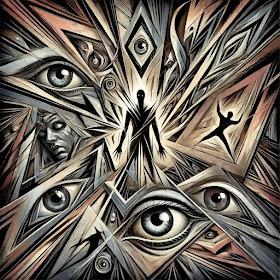One of the important concepts which remains with me from Roy Bhaskar's philosophy is that of absence, and that "absence is causal". Perhaps it's not a surprise: who 'isn't there' is something that we tend to dwell on. I find myself dwelling on absent sleep these days too... The dwelling on things in itself is also interesting. Isn't it a form of redundancy? A repetition, a representation of the same thing in multiple ways. Every experience carries an echo of what is missing.
It's difficult to talk about this because it means that you have to talk about "nothing". My book "Uncertain education" (which I must revise and publish properly!) was originally intended as a book about absence in education. It was too hard to write a book about nothing, so I ended up doing it in a different way. A friend of mine is also writing a book about nothing, and it has been a never-ending saga. We're always missing something, you see...
Absence can be quite practical. The gas bill that doesn't get paid is like this. But it can also be metaphorical - like the dead body of the wife's lover that gets ever larger in Ionesco's play "Medée" until it pushes everything else out of the apartment. Ionesco's joke is really expressing a deep truth about absence. But it is absence that drives the drama. Everything in this way is about nothing. The drama has to unfold to acknowledge the absence at its heart. Just as music has to unfold to acknowledge the silence from which it came and to which it will end. And life itself is an unfolding from one zygote until the next. It's all about missing something...

.webp)
.webp)
.webp)
